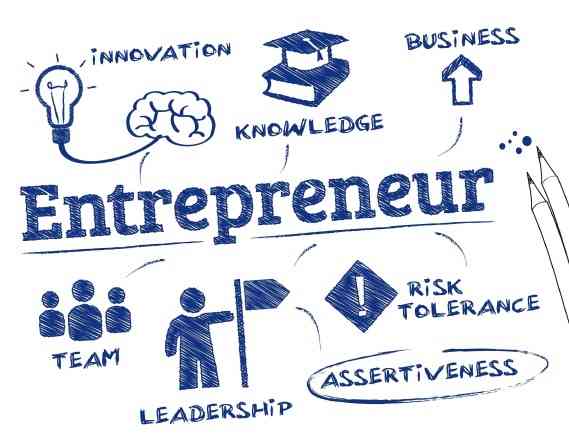
The cycle of entrepreneurship has not been easy to determine/predict especially in the turbulences that are caused by continued volatility, uncertainty, complexity and ambiguity (VUCA) environment we exist.
It is with this drive to run vibrant corporates from the modelled start-ups and business ideas that our entrepreneurs should move with consistency in the race they have started for generational dominance.
As said by Dwayne Johnson that “Success isn’t always about greatness. It’s about consistency. Consistent hard work leads to success. Greatness will come.”
That being the case in this edition we revisit some of the entrepreneurial practices for consistency as a reminder and housekeeping matter so as to keep in track regardless of the VUCA environment.
Our thrust is not to give up as the road is never easy when we built and run our own entrepreneurial businesses.
Just looking at your current costs against the anticipated revenues might discourage any further investments.
But in the world of doing business that is normal and to survive into the dreams made at the inception there is need not only to structure, but re-structure in some instances led by consistency.
As we go forward, we should appreciate that failure to plan is planning to fail.
- Leading in the era of Big Data.
- Demystifying the economics of lithium (II)
- The volatility in slots explained in detail
- Navigating the turbulent waters: Introducing ‘Business Compass’
Keep Reading
That has been one of the detrimental reasons for most of our entrepreneurs. As they live in the current and not plan about the longer future of their operations.
Remember it is not only about summing up revenues and costs through budgeting, but a composite of other factors.
Our planning should accommodate both tangible and intangible matters as supported by a balance of resources.
Those resources that we have previously talked about mainly, but not limited to land, capital (financial/technical), labour (balancing with Artificial Intelligence) and the usually forgotten which is time.
No wonder they say time is money we should be able to quantify time so as to make it talk to the functionality of all other resources.
Market planning also should be considered vital as we do not produce to sell but get informed by the markets first before we produce (moving from production orientation to the marketing/relationship marketing).
In the same planning it helps us to balance the mode of working, reaching customers and revenue generation.
Especially in the contemporary Gig Working world as an employment arrangement and subscription-based-business for managing revenues.
There are some traditional ways of doing business that are becoming redundant as we move through entrepreneurial phases/lifecycle.
Our redeemer in all these arrangements is planning in the initial and continued life of the business.
Then when planning has been done considering key aspects that are specific to your business idea it leads to organising for order in conversion and delivery of products/services.
Most of the times we find our entrepreneurs doing it haphazardly.
As part of the traditional management functions planning perfectly complements organising from the POLC acronym which stands for planning, organising, leading and controlling.
Here it is important to visualise the idea, processes, relationships and the overall structure as in the beginning, operation and growth of the business.
Use of diagrams, frameworks, models and other objects that simulates reality is vital.
Everything should be visualised as working reality where outcomes are determined.
That will help in even foreseeing positive and negative outcomes so as to adjust leading to allocative efficiency when resources will be organised for them to be used where they are most needed.
No man is an Island as the adage goes and this talks to the needed setting in the art of entrepreneurship.
Where business contacts you have developed should be maintained for further profitable referrals as you also create newer ones.
Contacts are critical in doing business as they not only inform numbers for database management and customer ranking but they create a source for future strategic partners.
That is as investors, brand ambassadors/advocates and sales agents.
Most of our entrepreneurs take longer routes in finding strategic partners yet they have customers as a closer hanging fruit.
Our role is to develop platforms that encourage customer involvement, their contribution to product/service development and quick response to their grievances/feedback.
Lastly as we move forward learning should not stop.
That is the reason why we always encourage and learning organisation that allows not only the employees but also the senior management and founder(s) to be always seeking for newer better ways.
Especially in this competitive and VUCA world of doing business. Consistency is the art of entrepreneurial longevity, don’t give up.
*Dr Farai Chigora is a businessman and academic. He is the head of business science at the Africa University’s College of Business, Peace, Leadership and Governance. His doctoral research focused on business administration (destination marketing and branding major, Ukzn, SA). He is into agribusiness and consults for many companies in Zimbabwe and Africa. He writes in his personal capacity and can be contacted for feedback and business at fariechigora@gmail.com, www.fachip.co.zw, WhatsApp mobile: +263772886871.









